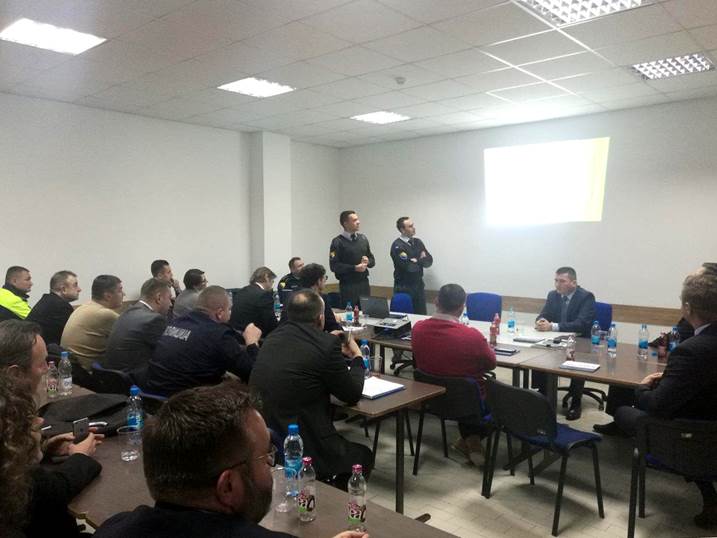Representatives of the EUSR/EUD in Bosnia and Herzegovina (BiH), the BiH Ministry of Security and the BiH Border Police met on 14 December 2016 at the Joint Police Cooperation Centre (the Centre) in Trebinje, in order to promote potential benefits and the role of the Centre in the security system in BiH and the region to other law enforcement agencies in Bosnia and Herzegovina.
EU representatives provided a presentation on the legal background and EU/Schengen best practices encouraging regional and national cooperation between the law enforcement agencies, and explained the challenges and lessons that EU Member States have faced in this field. Through practical simulation of the data exchange process, local interlocutors explained the challenges of the Centre in the current system of data exchange between the participating countries.
Located within the offices of the Trebinje Border Police Unit, the Centre will offer more efficient cross border cooperation and provide better service along 600 kilometres of the border of BiH with Montenegro and Serbia. This directly contributes to the prevention of cross-border and organised crime. In 2017, the EU will focus its activities and support on BiH national and international cooperation in the framework of the recently adopted EU IBM concept.
The Centre was opened on 24 March 2014 on the basis of the Protocol on Foundation of the Joint Police Cooperation Centre, signed in December 2013 between Bosnia and Herzegovina, Montenegro and Serbia. The legal basis for the protocol is the Convention on Police Cooperation in Southeast Europe signed on 5 May 2006 by more regional countries. The purpose of the Centre is to improve cross-border police and customs cooperation between participating countries. The main forms of this cooperation are rapid information exchange and coordination in police and customs investigations in fighting all forms of cross-border major and organised crime. Through this cross-border cooperation, the law enforcement agencies will improve overall secure environment for all citizens of participating countries.
Centres of this kind represent Schengen best practice. This form of police and customs cooperation is highly encouraged within the Schengen Acquis/Convention and is standard practice in the EU with over 45 such centres opened in EU Member States so far.

